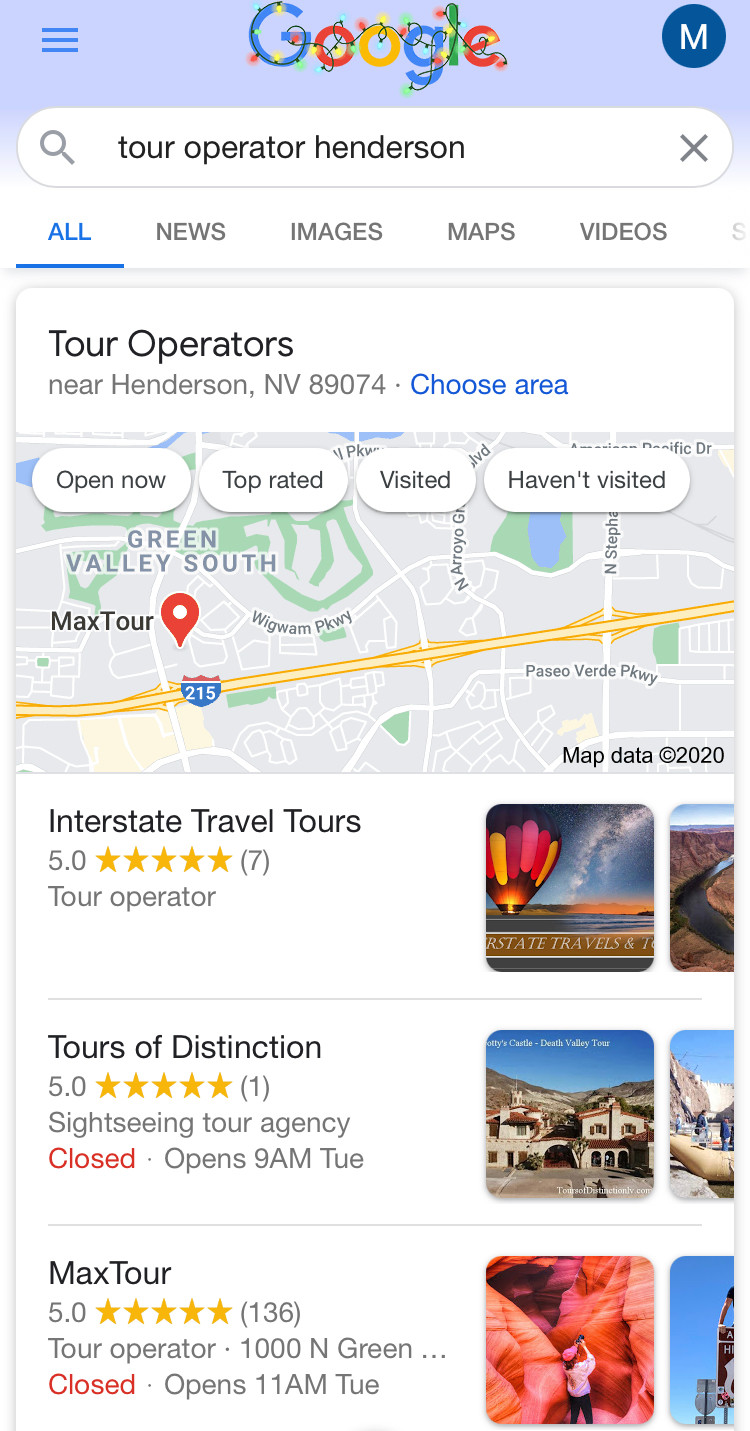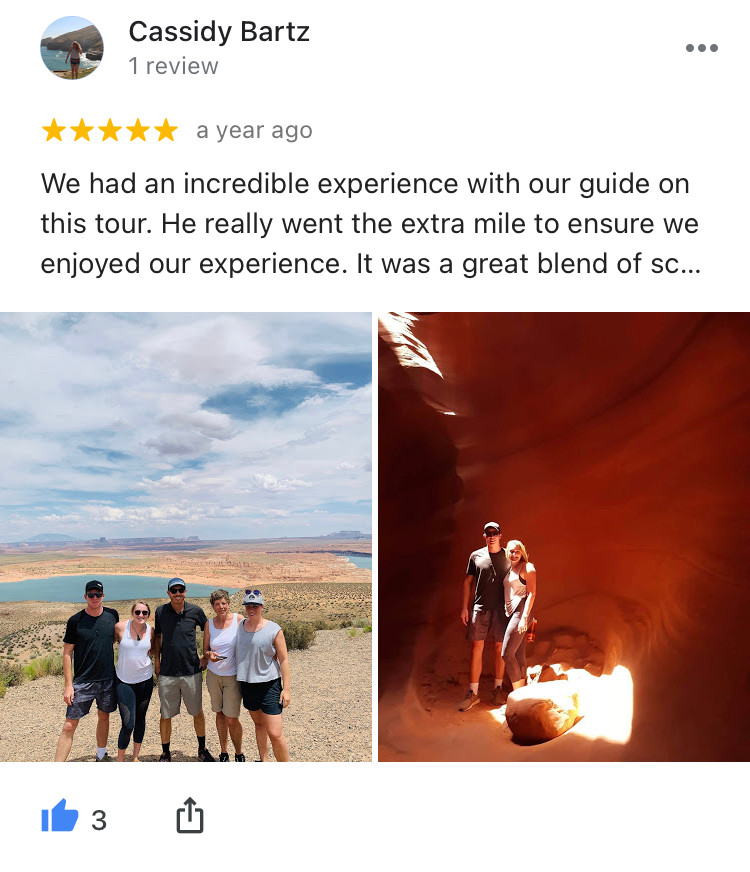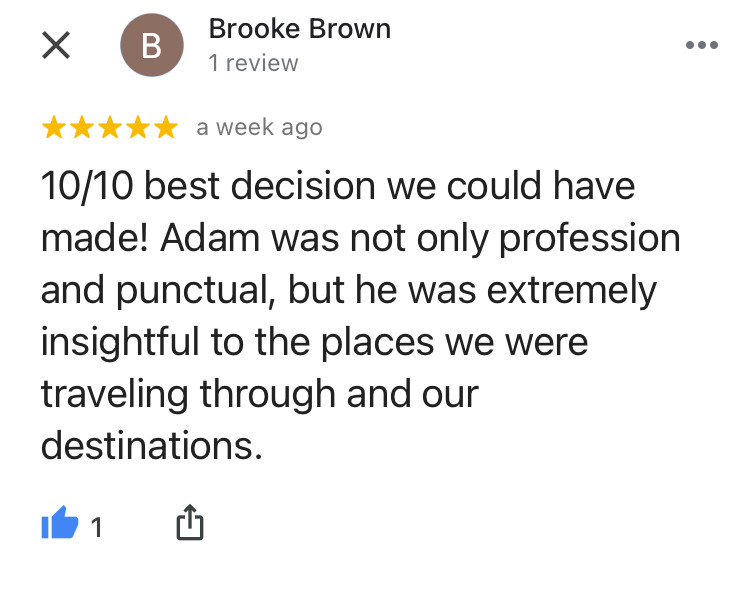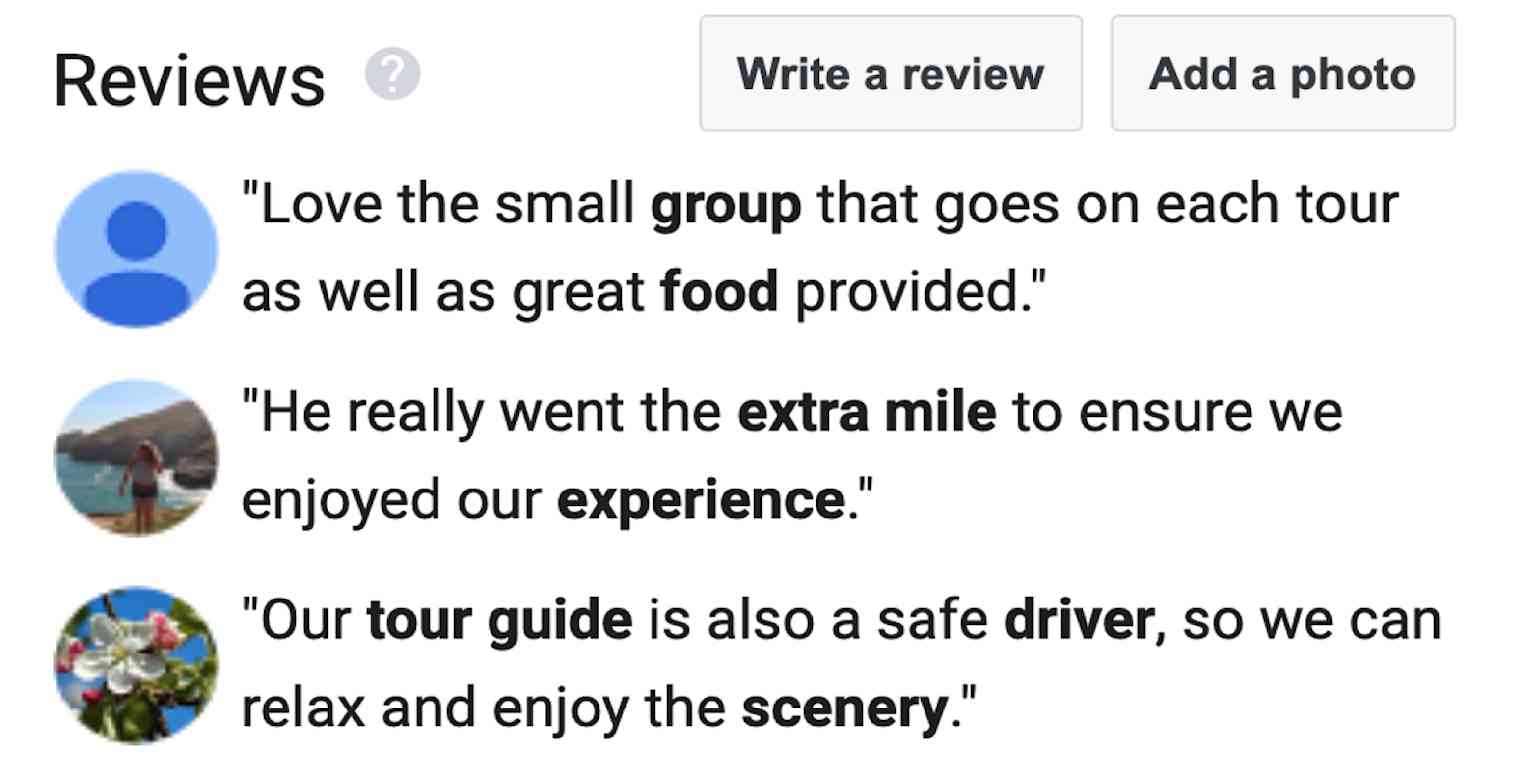An expertly crafted marketing plan will only take you as far as your online reviews allow. You can say all the right things, on all the right platforms, with all the right keywords, but a series of bad reviews can still tank even the best marketing strategies.
We run a small tour agency out of Las Vegas, MaxTour, taking guests from around the world on tours to iconic destinations like the Grand Canyon. We're obsessed with customer service, and we want our marketing approach to reflect that.
Word-of-mouth has always been the most effective advertisement for any product or service. The trust that's present in friends, family, and everyday consumers can never be matched with any ad or social media campaign. Today, people get that valuable word-of-mouth insight from online reviews.
Unfortunately, in today's oversaturated markets, having a superior product or service isn't always enough to get you those reviews. To make the most of this strategy, you'll need to invest time, research, and a little bit of money.
Why are online reviews important?
At MaxTour, we gain insight from our customers via a post-purchase survey. As part of this survey, we asked our customers, "Why did you choose us over our competitors?" And 86% of our respondents answered "online reviews." 86% is not the kind of number you want to just gloss over. 86% is a number you want to drive all of your marketing strategies.
In our experience, here's why reviews matter.
Reviews drive conversions
The more five-star reviews you have, the better your conversion rate will be. Of course, you want quantity and quality: the more detailed your reviews are, the more trust they inspire. Once you have that coveted five-star rating, go ahead and sit back and...no. Keep going. You can always use more reviews.
Reviews boost SEO
Online reviews are seen as fresh, original content by search engines. This is gold for boosting your organic search results. The more people who are talking about your company, the higher it will climb on the results page. This has the potential to bring your website front and center for new customers to discover your products and services for the first time. And let's be honest: getting a little extra exposure never hurts.
Of course, reviews are just one part of the conversion formula, but they can have a noticeable effect on your results. Some specific areas where you can see this payoff is increased traffic to your web page or Google My Business Page, and even your rank in the map pack.

To get more bang for your buck, toss in a few of your targeted keywords when drafting replies to your reviews. You still need to be authentic, and your responses should always be relevant. Choose your words strategically to maintain your brand voice and high level of customer care while also injecting a little SEO magic.
Reviews build trust
It can be challenging to turn potential customers into loyal customers. Consumers tend to take what a company says about itself with a grain of salt (as they should). You can tell your potential customers that you're reliable and trustworthy all day long, but our experience with bad-faith advertising has taught us humans to be skeptical. On the other hand, we do tend to believe Joe That-Lives-Down-The-Street or Sally From-That-City-We-Visited-Once-On-Family-Vacation.
Example: are you going to put more faith in us telling you our Grand Canyon Tours rock, or would you be more confident hearing it from Johnny W. from Des Moines? (Johnny's a great guy by the way. That joke he told about the Band Canyon while playing the air trombone? *Chef's kiss*.)
When it comes to building trust, there is really no substitute for honest reviews.
To help promote trust, consider asking reviewers to include photos in their reviews. It's becoming more widely understood that some companies now pay for reviews, so including photos of the actual reviewer using the product or service goes a long way to prove authenticity.

When you see a family photo taken at the Hoover Dam in one of our reviews, you know our reviewer was actually on one of our tours. And, #HooverDamIt, does it look like they are having the time of their life!
How to get reviews
We have a few tried-and-true methods of increasing online customer reviews and using them for maximum benefit.
You have to ask
The most important step in getting more reviews is also the easiest: just ask. If you wait for reviews to come in naturally, it's going to be a long, slow process. Additionally, you may find yourself with an unfortunate ratio of positive to negative reviews. Why? Customers with negative perceptions are the ones most motivated to leave reviews. Those happy, satisfied customers seem to move on from the experience quickly and with ease. Dissatisfied customers tend to seek closure by working through their frustrations in your comment section or online reviews.
You can provide stellar service and create tons of satisfied, loyal customers, but if potential customers only hear from the handful of people that feel they have been wronged, your reputation will take a huge hit. That's why it's vital to ask for reviews from happy customers. The good news is that 77% of people are willing to leave a review if they're asked.
Implement the firehose technique
The easiest way to collect more reviews is to send out automated emails or text messages to your customers after their purchase, and you can use your CRM or email marketing software to do it.
To get our customers from our booking service, Rezdy, into our email marketing service, Sendinblue, we use Zapier. Then, 12 hours after a tour ends, we follow up with an automated email thanking our customers for joining and asking them how they liked the tour.
Zapier is a no-code automation tool that lets you connect your apps into automated workflows, so that every person and every business can move forward at growth speed. Learn more about how it works.
When sending emails to every customer, you do run the risk of reengaging dissatisfied customers. The last thing we want to do is send them a personal invitation to broadcast all the ways their expectations were not met. To get ahead of negative reviews, we offer an option of a survey if they would like to leave any feedback or a review if they had an excellent experience. (Honestly, how can you not have an excellent experience at Seven Magic Mountains? That place is...magical.) Here's the exact email we use:
Thank you so much for choosing MaxTour for your tour. We hope you had a great time!
We work hard to provide the best experience for our guests and are always looking for ways to improve. If you have any feedback, please click here for a short survey.
If you had an excellent time, we would love for you to leave us a review on Google.
We use Google Forms for the short survey, and the review link can be changed to different platforms depending on where we need reviews at the moment. We call this the firehose technique: we can aim the spray of reviews where it's needed with the simple changing of a link in the outreach email or text.
This system led to getting reviews from 8% of our customers. Not bad, given all we had to do was ask. And as a bonus, we got some nice feedback from our survey that we could implement into our service.
Get everyone involved
We found that by having our employees ask for reviews instead of the request coming from the company, we got 21% of customers to leave a review. Why? We figure people are more likely to do something for another person than for a faceless company. When the request feels personal, most people are willing to help.
To encourage our employees to ask customers for reviews, we offer them a bonus for every five-star review with their first name in it. This is where that financial investment we talked about earlier comes in. If your team gets into it, they can rack up bonus money quickly. This is a great thing for you! Getting loads of reviews will lead to better revenue in the future. These reviews are permanent and will drive sales for your company for years to come.
We ask our employees to reach out the day after their tour—in a more traditional business, you could target the end of a shift for follow-up. The goal is to get the request out from a familiar name while the customer's experience is still fresh.
One note: we like to get verbal confirmation that we have permission to contact customers for a review. A simple "Can I email you later to ask for a review?" can both cover you legally (if you haven't already gotten their permission to send them emails) and warm the customer up for following through.
Push reviews to where you need them most
We monitor our various review platforms to know which platforms and products could use a boost. We want to keep our review count high, keep our score as close to five stars as possible, and keep our scores consistent across products.
New products start with a blank slate, so they have the most urgent need for reviews. For this reason, with our new products, we'll triple the bonus we give our guides for reviews on this product. Five-star reviews in these early stages are more valuable to us, so we make it more rewarding for our employees to get them. This way, we can quickly build a base of reviews for new products and start to receive all the benefits that come with more reviews.
Some of our employees excel at getting Google reviews and find it pretty easy to do. When this becomes the case, we'll turn the firehose away from Google reviews and encourage earning bonuses for reviews on other platforms.

Google reviews are incredibly simple to collect. Most people have a Google account, and they're already signed in on their phone or computer. The ease of access to this review platform cuts down on a lot of the barriers to getting customers to write reviews. Google reviews also don't require customers to write anything—customers can give a star rating only. Star-only reviews don't earn our employees bonuses, but it's a great way to get at least a rating from customers that don't want to invest time into writing a review. Again, quality is king, but quantity still counts.
No matter where you're getting your customer reviews, you can automate the process. Here are 4 ways to automatically gather and track customer reviews.
Go out and get those reviews
You need to have a product or service worthy of winning a great reputation. Once you have that, you're on track to get a high rating and all the benefits that come with it—with just a little extra work. Now get out there and start asking for reviews, incentivizing your employees to do the same, and using your reviews to get the most out of them.
This was a guest post by Matthew Meier, the founder of MaxTour, a tour operator in Las Vegas offering small group tours in Mandarin and English. Want to see your work on the Zapier blog? Read our guidelines, and get in touch.





